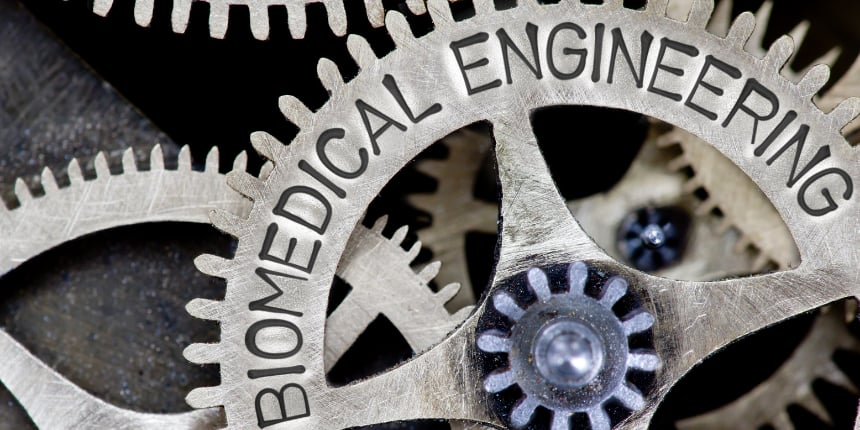IIT Hyderabad launches new B.Tech programme in Biomedical Engineering
Team Careers360 | October 7, 2020 | 04:10 PM IST | 2 mins read

NEW DELHI: Indian Institute of Technology, Hyderabad has announced the starting of a new B.Tech programme in Biomedical Engineering. As per the press release, the programme will train the world class biomedical engineers in next generation healthcare technologies and will prepare them to work at the frontiers of healthcare innovations in the deep-tech industry or academia.
Students who will pursue Biomedical engineering from IIT Hyderabad will be trained to design medical devices, develop 3D imagers and microscopes, crunch mountains of healthcare data, recognize patterns in health and disease, simulate and predict spread of epidemics, create brain-spinal systems in silico, move prosthetics with the thoughts, 3D print a cornea, bone or skin, develop nano-particles to fight tumors or burn them down with ultrasound, design implants, regenerate organs from stem cells, create bio sensors on a chip, model impact on body, craft algorithms that mimic our body and brain and much more.
BS Murty, Director, IIT Hyderabad during the press conference said, “IIT Hyderabad has taken a bold step towards Athma Nirbhar Bharat through Athma Viswaas, by developing a strong BTech program in Biomedical Engineering thereby inculcating biomedical education in young minds from the grassroots, with the BTech program for the first time among all IITs. We strongly believe that this program will help in bringing out indigenous medical devices of high quality that serve all sections of the country.”
He further said that one of the unique X-factors of Biomedical engineering programme from IITH is an advanced module on biomedical product design, entrepreneurship, regulatory affairs and clinical immersion, that brings in a core product design and development focus. A lot of these are the result of learnings from Center for Healthcare Entrepreneurship which is being run by the department of Biomedical Engineering.
The biomedical engineering programme at IITH is designed around 4 verticals - bio-imaging/sensing, bio-mechanics, bio-material and bio-intelligence / AI. They rest on a single horizontal - core training in physiology, anatomy, systems science, mathematics, circuits, instrumentation, mechanics and algorithms.
Follow us for the latest education news on colleges and universities, admission, courses, exams, research, education policies, study abroad and more..
To get in touch, write to us at news@careers360.com.